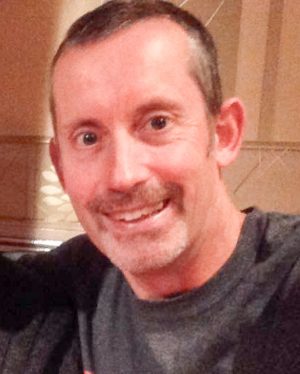
The Girvan Three Day; a Scottish Easter racing institution but now late lamented – sunshine, ice, snow and everything else in between but whatever the weather it was never a race for the faint hearted.
Bialoblocki, Downing, House, Elliott, Hayles, Curran, Lloyd, Doyle, Yates – some of the biggest names in British bike racing have won over that tough South West Scotland parcours.
Let’s go back to 1986; aforementioned Paul Curran is after his third win in the event – but Scotland’s Martin Coll has other ideas…
We recently caught up with Martin at his home in Arizona to ‘talk a little Girvan’ – and the Peace Race.
Martin was also Graeme Obree’s right hand man ‘back in the day’ when the man from Ayrshire was burning up the tracks of Europe on ‘Old Faithful’ – so we have more of those ‘Graeme Tales’ for you in Part Two of our Martin Coll interview.
You were a schoolboy star, Martin.
“Yes, but before that my dad nearly put me off cycling for life; “let’s go for a wee run on the bikes,” he says.
“He was the master of administering slow death on a bicycle – he didn’t go fast but he never stopped!
“I was 13 at the time and 120 miles later I chucked the bike up the attic.
“However, Glenmarnock stalwart, John Storey rescued me and I went on to win 33 times as a schoolboy including the circuit race, 10 mile time trial and pursuit championships.”
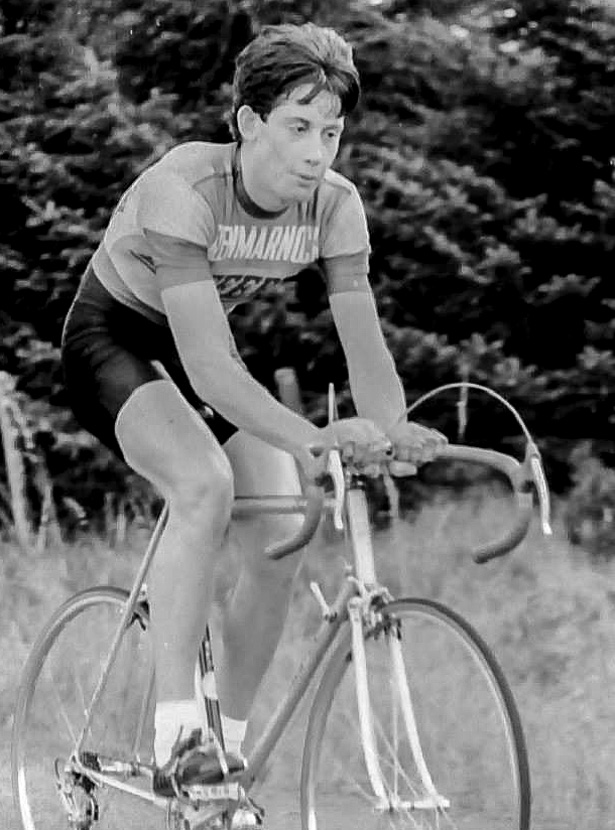
Do I remember you winning the ‘100’ champs?
“I was second to John O’Donovan up on the Cromarty Firth course, I broke the ‘100’ record – but so did he, of course.
“I won the National Cyclo-cross Championship three times, the National Road Race Champion and just when I turned 18, won the Crianlarich Circuit in front of Jamie McGahan, Davie Whitehall and Sandy Gilchrist, all top classy guys and a good bit older than me.
“One of the experiences which I gained so much from in Scotland was being thrown into the Health race in 1983, I learned so much in that week.
“Jamie McGahan won and being part of his team was so special – even though I got battered every day. The thing with racing at international level is that you either adapt to it or you don’t.
“Then in 1984 I was second in the Girvan behind Paul Curran and Dave Mann – Curran was the top rider in the UK at that time, amateur or professional, I think.
“In ’86, when I won the Girvan, Curran was out for his third win in the event – it’s always tough when you have that number one ‘target’ on your back.
“I’d trained hard all winter for it; I wanted to put in a good performance.
“Curran put the hammer down and won the last stage but I won overall; Brian Smith gave me a lot of help that day – Curran did eventually get his third win but it took him until 1995.”
You mentioned international racing…
“I rode the Tours of Sweden, Denmark and Mallorca – as well as the Ràs and the Nissan Tour in Ireland.
“And of course the Peace Race, twice.”
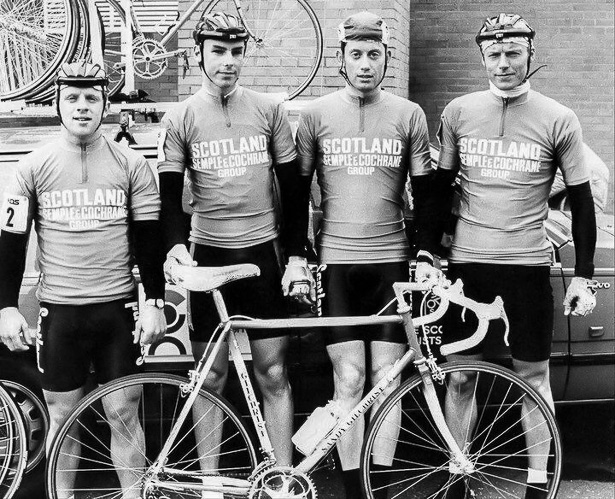
How did you prepare for that first Peace Race?
“I didn’t!
“Sandy Gilchrist called me and asked me if I’d like to ride it. Bob Thom the manager wanted me – I’d had good form with a win in the Cinturon Tour in Mallorca – but I’d have to leave the very next day.
“I spoke to my boss and he said I couldn’t get the time off… I suggested that he speak to his boss since I’d been selected to represent Great Britain in the 40th anniversary edition of the most important amateur stage race in the world.
“I got the OK.
“Bob Thom said I should bring two suitcases, one with my gear and another empty one for all the nick-nacks I’d be bringing home.
“The next thing, there I was at the presentation with Olaf Ludwig, Uwe Ampler and Djamolidine Abduzhaparov.
“I was with the lead group of about 40 riders on stage one and watched the sprint with Ludwig beating Uwe Raab and Abdou.
“I was picked for a ‘controle’ – I was sitting there waiting with Ludwig, it was surreal.”
But you must have been better prepared for your second Peace Race?
“Not at all!
“I had no form and shouldn’t have been on the team but Bob Thom wanted me there for squad morale purposes – the ‘team clown.’
“It wasn’t fun, I got my head kicked in every day; one day I was an hour down having been dropped in the first few miles.
“Bob Thom said I showed a lot of courage to finish; I was lanterne rouge and got a huge ovation at the final presentation – although that might have been because it was the last one of the night!”
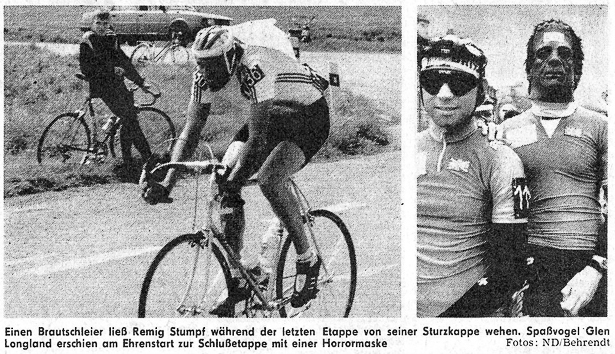
What was the accommodation and food like?
“The grub wasn’t the best – the Italians brought their own – but the whole thing was so well organised; at the place you were staying be it hostel, hotel or university halls of residence they’d collect your bag with all your stuff which would be in your room when you arrived at the finish.
“And on your bed would be postcards with stamps on – all you had to do was write them out and they’d uplift them and post them for you.
“At night they whole race would eat together, not in the individual hostels or hotels, all together, amazing – and there would be a presentation, every night.
“Then there were the team vehicles, all military jeeps, all the same; at the finish someone would be waiting for you with your number and blanket to wrap you in and whisk you away to the digs in the jeep – the organisation was incredible.
“In many of the towns there were tram lines and they used ropes to fill them in so as your wheels wouldn’t drop into them – that took a lot of organising.
“But you know, the countries we raced through were so very poor, in Poland the ploughs were still horse-drawn.”
What were the Eastern riders like with you?
“We had a good time in that respect, we interacted, had conversations with them about how they were brought up – fascinating stuff.
“They’d been selected to go to sports schools through their national system and we know now that involved drugs.
“To get on the National Squad meant a wage, a better apartment and the chance to win prizes in races like the Peace Race; there was a Skoda for the winner and a motorbike for the second place finisher – and the East Germans and Russians really went after each other…
“It’s maybe a cliché but it was their ‘Tour de France,’ very prestigious; everything stopped for it, schools turned out, factories closed, the crowds were enormous – like Tour de France stage finishes.
“When the Berlin Wall came down many of those riders turned pro – Ludwig won the green jersey in the Tour, Jaskula was third in the Tour and Abdou won the points jersey in all three Grand Tours.”
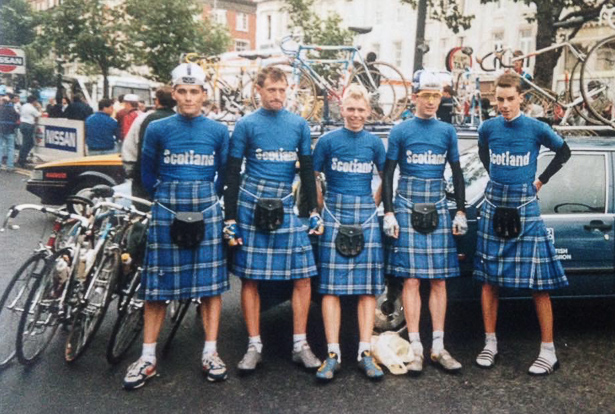
Your best day in the race?
“We were in East Germany and it was one of the shorter stages, around 35 miles, on a circuit based around the city of Gera, where Olaf Ludwig is from.
“Klaus Ampler attacked from the start and the whole Russian team took to trying to drag him back; there was a headwind drag of two or three miles up into town so I could sit in the main group and watch.
“One by one the Russians popped and went backwards, although the last time up the drag they got close to Ampler – but they were all so spent with their efforts that they got nothing.
“It came together and local guy Ludwig won the sprint, from Uwe Raab, with Ampler still able to get third – an East German one-two-three. Incidentally, Dimitri Konyshev was 6th in the same time.
“It was amazing to watch all of that unfolding right in front of me.
“It was a very hard race; Glenn Longland – who was a top time trialist in the UK at the time – was on the team and he found it very difficult in the echelons the first four or five days.
“It was pan flat and in the crosswinds the echelons would form with Russians and East Germans in the front one, then graded by ability as you went back down the field. You’d ride into a sheltered forest and it would come back together until we cleared the trees when it would echelon again – I was always telling Glenn to ‘get up front and be ready’.
“We were desperate to get into the mountains away from the crosswinds and those echelons!”
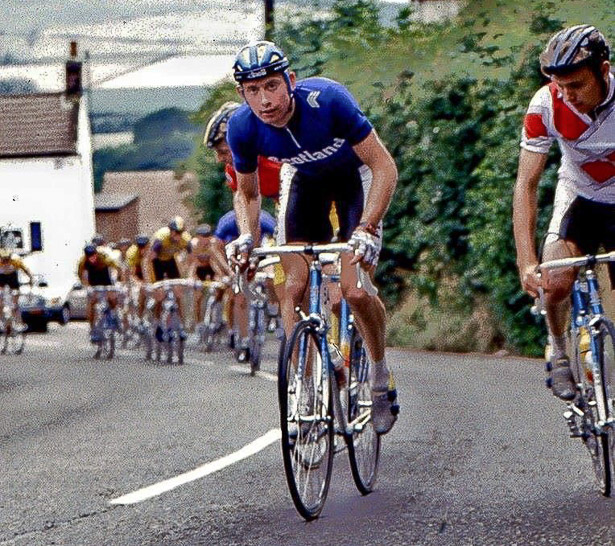
Any regrets about your cycling career?
“I’d like to have ridden the Milk Race. In ’86 I won Girvan and was second to Curran in Manchester-Rhyl, so I had the form – but as a Scottish rider you had to be twice as good as the English guys to get a ride.
“The Irish guys could ride the Worlds and Olympics but we had to be selected for a GB squad.
“In the Milk Race there were 12 places, there were two teams of six riders from the UK, so there was space for me but I think that there’s little doubt Jim Hendry (ironically a Scotsman, ed.) who was in charge of team selection with the BCF back then was anti-Scottish.
“I don’t regret not going further with my career; Robert Millar got me an invite to race with the UV Aube club in Troyes but I declined – I still don’t like needles…
“I’ve been blessed with my cycling career; I did race in France but there was a lot of ‘kit’ around and if you went pro then you had to go on a ‘programme.’
“My friend, the Dutchman Johannes Draaijer won two Peace Race stages but was dead at 26 years-of-age – that was in the early EPO days.
“When I look out of the window here in Arizona, south to the Sierra Madre Mountains and Mexico, I have no complaints about how my life has gone.”
Part two of our interview deals with Martin’s days as Graeme Obree’s manager, confidante and personal assistant – more good reading from Mr. Coll.



